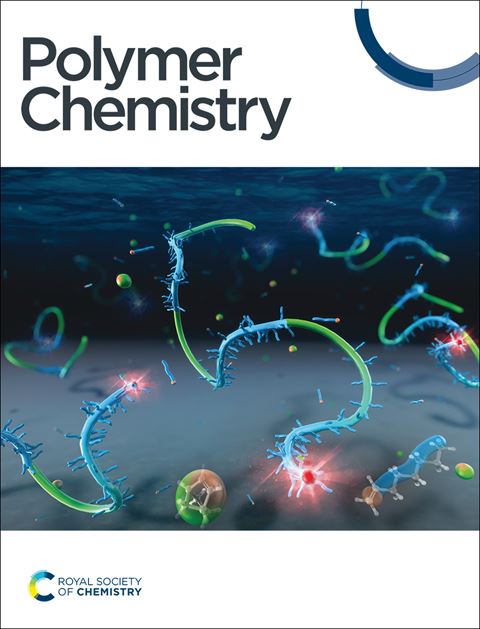异构体驱动的聚合、解聚和重构
IF 4.1
2区 化学
Q2 POLYMER SCIENCE
引用次数: 0
摘要
我们报告说,硅-环庚烯顺式异构体和反式异构体之间的环应变焓差异为通过烯烃偏聚作用进行聚合和解聚提供了动力。由于需要新的方法将低应变异构体重新引入塑料经济中,因此开发了一种基于开环/交叉偏聚步聚合的聚合方法,这种方法可以对交替共聚物进行完美的序列控制。这种化学原理是实现高效聚合和解聚的平台,同时还能提高功能聚合物的质量回收率。本文章由计算机程序翻译,如有差异,请以英文原文为准。

Isomer-driven polymerization, depolymerization, and reconstruction†
We report that differences in ring strain enthalpy between cis and trans isomers of sila-cycloheptene provide a driving force for both polymerization and depolymerization via olefin metathesis. A need for new methods to reintroduce the low-strain isomer into the plastic economy inspired the development of a polymerization based on ring-opening/cross-metathesis step polymerization, which afforded perfect sequence control for an alternating copolymer. The chemical principles are a platform for achieving both efficient polymerization and depolymerization with high mass recovery in functional polymers.
求助全文
通过发布文献求助,成功后即可免费获取论文全文。
去求助
来源期刊

Polymer Chemistry
POLYMER SCIENCE-
CiteScore
8.60
自引率
8.70%
发文量
535
审稿时长
1.7 months
期刊介绍:
Polymer Chemistry welcomes submissions in all areas of polymer science that have a strong focus on macromolecular chemistry. Manuscripts may cover a broad range of fields, yet no direct application focus is required.
 求助内容:
求助内容: 应助结果提醒方式:
应助结果提醒方式:


